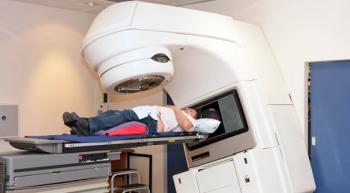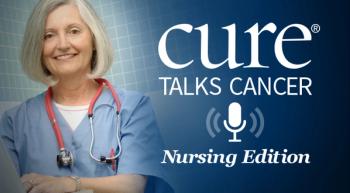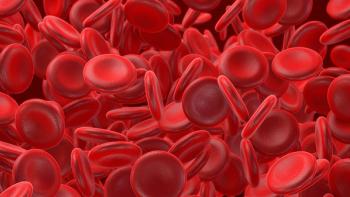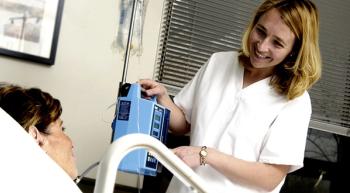
Oncology nurses must ensure that patients are discussing issues they face when it comes to paying for medication.

Oncology nurses must ensure that patients are discussing issues they face when it comes to paying for medication.

Communication is key to ensure the best quality patient care.

Conducting a geriatric assessment, predicting chemotherapy toxicity, and considering polypharmacy are all crucial in this growing population, experts say.

Nurses play a key role in helping to manage the chronic adverse events (AEs) associated with radiation, even into survivorship, according to Hilda Haynes-Lewis, PhD, ANP-BC, AOCNP.

There are multiple key players, including oncology nurses, in the treatment of patients with myelodysplastic syndrome.

Nurse educators are more effective than electronic guides in ensuring that patients with cancer are safely discharged from the hospital without readmissions, a study found.

An audit of one institution's administration shows that adhering to a detailed list of tasks prevents missed steps in a complicated process.

Health care providers need to break the cycle of inappropriate symptom communication to help improve patients’ quality of life.

Diabetes may be a risk factor for increased symptoms among breast cancer survivors, highlighting the need for interventions to control the disease, according to secondary analysis results presented at the ONS 44th Annual Congress.

Researchers found that shared decision-making as part of a pain management plan of care could improve outcomes in patients with cancer.

Interventions must be devised to help women compensate for losses in concentration and psychomotor speed, researchers say.

Hear from the winner of the 2019 Extraordinary Healer award.

Creating a way to analyze the postings of patients and caregivers seeking peer support can give doctors and researchers insights about how to help them.

Researchers found significant gender and role differences regarding cardiovascular disease incidence and its related health behaviors among cancer survivors and their spouses.

The terminology that oncology nurses use to describe opioid addiction can affect patient care.

Nurses can help manage post-traumatic stress disorder symptoms in survivors of non-muscle invasive bladder cancer.

In one institution, a weekly multidisciplinary meeting has proved to improve care for patients with cancer who are receving concurrent therapies.

Despite increased physical activity, nutritional intake behavior among female cancer survivors did not improve with an exercise intervention program, according to a randomized, controlled trial.

An at-home computerized program could be beneficial in treating cognitive impairment in cancer survivors.

Clinical hypnosis offers a non-pharmacological approach to managing chronic pain after cancer treatment.

Mindfulness is key when it comes to preventing compassion fatigue.

CAR-T cell therapy is greatly improving the outcomes of patients with blood cancers, but not without its own set of toxicities.

Phyllis McKiernan, MSN, APN, OCN, Blood & Marrow Transplant Program, John Theurer Cancer Center explains factors that go into choosing an iron chelation therapy for a patient with myelodisplastic syndrome (MDS) experiencing transfusion-related iron overload.

Cancer immunotherapies are a promising development, but taking care of patients who are using these drugs can be a challenge for oncology nurses.

Oncology nurses play an important role in educating patients with chronic lymphocytic leukemia (CLL) about the adverse effects (AEs) associated with ibrutinib (Imbruvica) treatment.

A symptom assessment app used at home may empower education and self-management among patients, and help with clinician communication.

In patients with advanced breast cancer, oncology nurses play a key role in outcomes by providing education and supporting adherence to a treatment regimen.

While the use of nivolumab (Opdivo) plus ipilimumab (Yervoy) shows promise for a subgroup of patients with metastatic colorectal cancer (mCRC), 32% still experienced a treatment-related adverse effect.

Estimates find that 10-64% of patients experience financial hardships related to the cost of medical care.

A clinically meaningful overall response rate was experienced by people with chronic graft versus host disease.